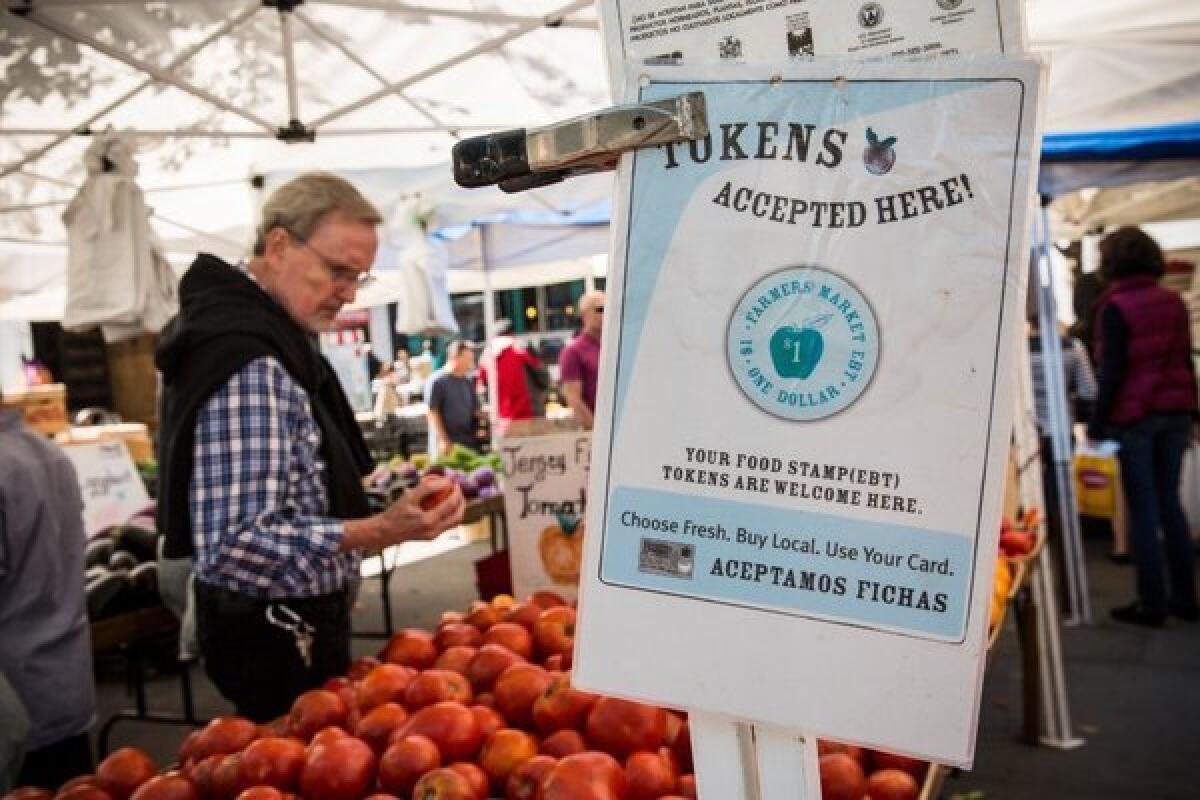The next food stamp crisis is about to hit

The larder’s getting barer. A 15% cut in food stamps looms next week.
If you’ve been following the food stamp debate in Washington, you know it’s about whether to cut food stamp benefits for the disadvantaged by $4 billion a year (the House proposal) or only $400 million a year (the Senate plan).
Here’s what you may not know: By its pure inaction, Congress is about to impose a cut in food stamp benefits that beats both. Next week, on Nov. 1, benefits will be cut by $5 billion for this fiscal year alone.
That number may be hard to grasp, but here’s what it means on the ground. It means a loss of 21 meals a month for a family of four on the Supplemental Nutrition Assistance Program, or SNAP (the formal name for food stamps). About 47 million Americans will be affected by the coming 15% reduction in benefits across the board.
Sounds like a crisis needing immediate relief, doesn’t it? Not to our Congress. “Congress would have to take action, and there’s no pending legislation to do that,” said Dorothy Rosenbaum, a SNAP expert at the Center on Budget and Policy Priorities.
Even if there was, time is obviously tight. The lawmakers only come back to work on Tuesday, having taken a long weekend to recover from their horrific workload during the, er, government shutdown. (Posturing for the TV cameras in front of the shuttered World War II Memorial takes a lot out of you, don’t you know.)
The coming benefit cut is the perverse result of the fiscal stimulus legislation of 2009, followed by a couple of other stimulus measures enacted later. The 2009 stimulus measure increased monthly food stamp benefits by about $20 to $25 per month as a spur to economic recovery. For an eligible family of four, the increase of just over $80 a month raised the maximum benefit to $668, from $584.
The idea was that the increase would fade away over time, as inflation increases brought the basic benefit up to that $668 level. The original estimate was that the increase would be completely eaten away by late 2014.
But Congress accelerated the sunset. In 2010, lawmakers moved up the expiration date to April 2014 to help pay for the Education Jobs Act, which raised federal funding for school districts to keep teachers on the job. Four months later, Congress moved up the expiration further, to this Oct. 31, to pay for the reauthorization of child nutrition programs. That’s known as taking away with one hand what you give with the other, and it’s where things stand today.
It bears repeating that the food stamp program provides the No. 1 opportunity for members of Congress to display their hypocritical side. We’ve documented at length, here and here, the spectacle of conservative lawmakers voting to slash benefits, which amount to $1.40 per meal per day, while collecting millions of dollars in farm subsidies for themselves.
“Boondoggle” Doug LaMalfa, the GOP congressman from California’s Central Valley, is our poster child for this; 11% of the residents of his home Butte County are served by SNAP. Californians will lose a total of $457 million in benefits because of the cut.
But LaMalfa’s not the only well-fed food stamp slasher. Rep. Stephen Fincher (R-Tenn.), who like LaMalfa has appealed to biblical authority to explain why he thinks that food stamp recipients can stomach a little less food in their bellies, has collected $3.5 million in agriculture subsidies since 1995. One in five residents of his home state receive food stamps.
What’s remarkable is that the food stamp slashers are usually the same people who claim Social Security is in trouble because it faces a possible cut -- in 2033. (Their solution is to cut benefits now, presumably so seniors can get used to living on less.) But they’re taking no action against a benefit cut scheduled to take place 10 days from now. Hey, what’s the rush?
More to Read
Sign up for Essential California
The most important California stories and recommendations in your inbox every morning.
You may occasionally receive promotional content from the Los Angeles Times.











